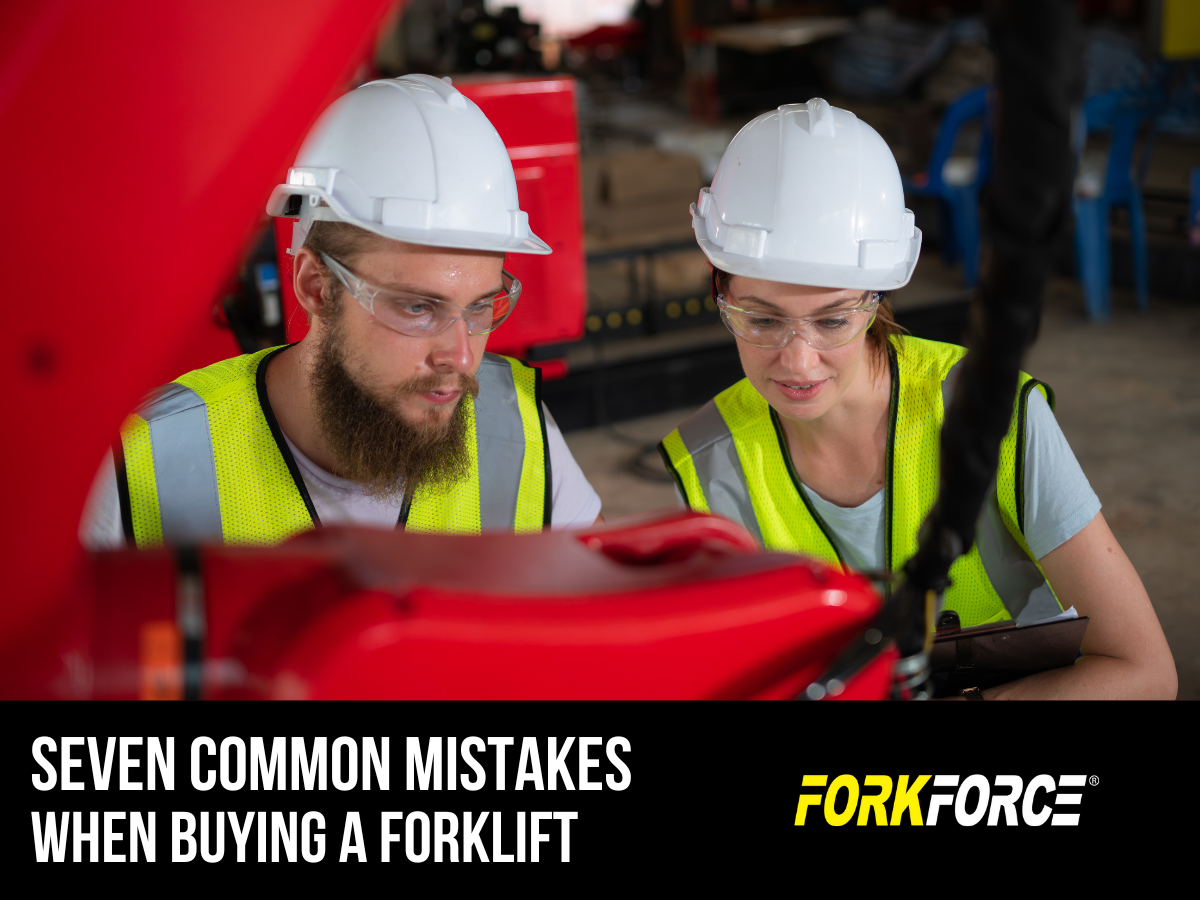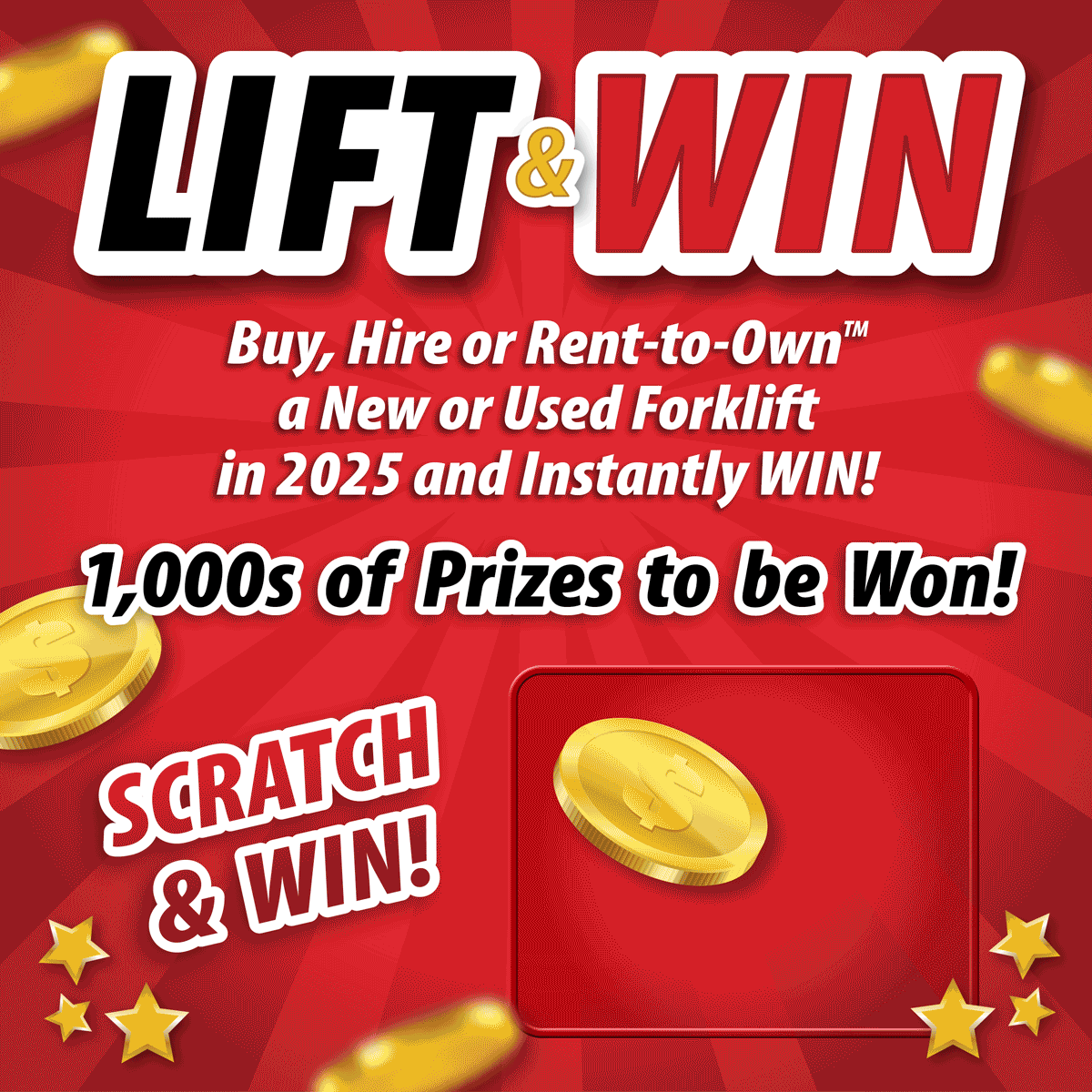
Investing in a forklift is a high-stakes decision that can either drive your operations forward or bog them down in costly setbacks.
Overlooking key considerations—like long-term reliability, safety features, or proper maintenance support—can lead to frequent breakdowns, unexpected expenses, and dangerous working conditions.
In this guide, we’ll walk you through the most common mistakes businesses make when buying a forklift and how to avoid them, ensuring your investment supports rather than hinders your productivity and growth.
1. Focusing Solely on Price
Choosing the cheapest forklift that meets your minimum requirements can lead to unexpected issues. While low-cost options may seem appealing at first, they often come with risks, such as:
⮞ Poor design
⮞ Inferior components
⮞ Poor quality construction
⮞ Lack of maintenance (specifically for used forklifts)
These factors can result in frequent breakdowns and costly downtime, leaving you without a forklift when you need it most and ultimately costing you far more in repairs and lost productivity.
Tip: Remember, the initial price is just one part of the equation.
2. Not Considering Financing Options
While budget is a crucial factor, many cost-effective financing options can lessen the financial burden. Instead of settling for a rundown second-hand forklift, consider getting a brand-new model at an affordable weekly rate. This not only enhances efficiency of your purchase machine, but also provides peace of mind with warranty and support just a phone call away.
At Fork Force, we offer competitive prices and flexible payment plans, including Rent-To-Own and Hire-Try-Buy options, making it easier than ever to acquire a forklift.
3. Not Buying from a Reputable Dealer
Purchasing from a trusted dealer ensures you receive quality post-purchase support. This can significantly reduce downtime if your forklift needs servicing. Established dealers often provide additional services like access to hire units during servicing, repairs or peak periods in your business, as well as a network of service technicians and quality part supply.
To find a reputable dealer, check online reviews, look for industry awards, and choose those offering solid warranties and servicing packages.
At Fork Force, we have a nationwide dealer and service network, with 7 branches across in Australia in Brisbane, Toowoomba, Sydney, Newcastle, Melbourne, Adelaide and Perth. Our dedicated Short Term and Casual Hire team in each State is also available when you need them most. So, in short – Fork Force has got you covered!
4. Not Assessing Your Requirements and Environment
Choosing a forklift based on price or availability alone can lead to purchasing equipment that does not meet your lifting capacity, lift height, or environmental needs. This could result in unnecessary spending on machinery that cannot perform the required tasks.
To avoid this mistake, ensure you discuss your specific needs with a knowledgeable salesperson. Reputable dealers often have experts who can recommend the right machine for your business.
5. Overlooking Long-Term Needs
A well-maintained forklift can last for decades. So, it is imperative that you consider your future needs when making a purchase of a forklift for your operation. Ask yourself – will you require regular servicing, parts, or attachments? It is wise to choose a dealer with a strong track record to ensure ongoing support for your material handling needs.
Tip: Research how long your potential dealer has been in business and whether they have a nationwide network to assist you.
6.Neglecting a Maintenance Plan
Regular maintenance is crucial for keeping your forklift in top condition, enhancing efficiency, and prolonging your forklift’s lifespan. A solid maintenance plan helps maintain your warranty and allows for early fault detection, preventing minor issues from escalating into much larger ones that can set your operation back significantly.
Many maintenance plans are offered at fixed costs, making budgeting much easier. Get in touch with our Service team if you’d like to discuss setting up an account for regular maintenance. You can do this even if you didn’t purchase your forklift from Fork Force originally!
7. Overlooking Safety Features
Operating a forklift carries inherent risks. Therefore, it is crucial to ensure that your forklift meets all safety standards. As a business owner, you are responsible for providing safe working conditions for your employees, which includes ensuring your forklift complies with Australian safety regulations.
Purchasing from a reputable dealer guarantees that safety standards are met. On the other hand, second-hand machines from marketplaces may not offer the same assurance.
Tip: Make a concerted effort to understand the legal safety requirements for your operation, and consider any additional safety features that you might need or like to add to your forklift purchase to reduce risks in your workplace.
Buying a forklift is more than just a purchase—it’s an investment in your business’s efficiency, safety, and long-term success. By taking the time to consider these seven critical factors, you’ll be equipped to make a decision that minimizes downtime, maximizes productivity, and keeps your team safe. But we understand that navigating these choices can be complex.
If you’re uncertain about any aspect of the process, our team at Fork Force is here to help! With a wide selection of forklifts, flexible payment plans, and a reliable support network across the country, we’re ready to ensure you make the best choice for your business.
Reach out to us today on 1300 420 708 or contact us — we’re here to answer your questions and support you every step of the way.

